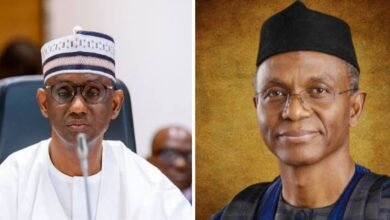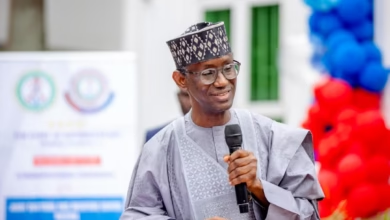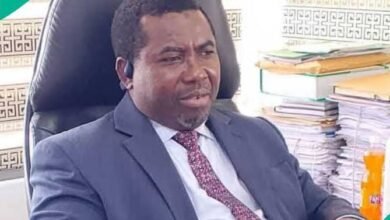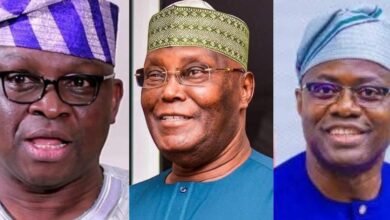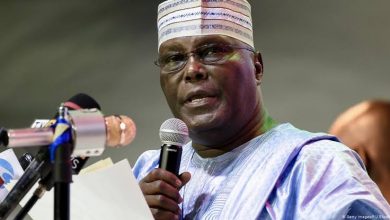At the end of the day, the goals are simple: safety and security – Jodi Rell
The $1bn approved for the military by President Muhammadu Buhari which is now to be transmuted to the National Assembly as a supplementary budget request, has generated somewhat expected reactions from different quarters. Some of these concerns are germane but the rest border on knowing what is right and wanting not to do it. The Nigerian citizens who are facing enormous security challenges deserve all the pity there is to give. For a long time, they have patiently waited with bated breath, uncommon faith and incomprehensible patience for a democratic messiah who will come save them from the destruction they have sadly become accustomed to.
However, politicians and policymakers misunderstood their patience for cowardice. A huge reawakening is gaining momentum. Citizens are waking up to their rights and privileges, and the realisation that their continuous absence from politics won’t give them the good governance they seek. There are others who have gotten so used to the evils of yesterday that everything they see or will see today and tomorrow will still be of the same prism.
It is important to note that, military budgets often reflect how strongly a country is perceived, the likelihood of threats against it, internal or external, the amount of aggression it wishes to condone. Nigeria is currently facing both internal and external threats which is a global phenomenon and her military – land, air and sea forces, not to mention cyberspace – need modernisation and sophisticated weapons to enable it “degrade and ultimately destroy” enemies of the State.
The number of helicopters in the fleet of the Nigeria Air Force, as an example, is inadequate for effective deployment across the current flashpoints nationwide. It should be highlighted that before the coming of the current administration, no new helicopter had been added to the fleet since 1998.
This article seeks to make a clarification. There are Nigerians who have gotten so used to benefiting from the dysfunctional governance of yesterday that anyone who comes today and tries to stop them from continuing to enjoy their yesterday will become an immediate enemy. Those ones are almost irredeemable. It is no use engaging them in any civil discussion as they have so politicised security matter beyond reason. They keep asking for the details of platforms to be purchased for the armed forces? To mention a few, precision-guided missiles, reconnaissance satellites, Global Positioning System (GPS) and radar-beating stealth aircrafts just to mention a few in the shopping list.
Defence budget is a kind of global race. It is as if countries are trying to stockpile weapons to outdo each other. Nigeria’s armed forces use obsolete weapons which need to be well-resourced and technologically superior in today’s warfare.
Numbers don’t lie, the United States with a population of 325.7 million spends $611 billion yearly on military hardware. That’s 36% of the global total defence expenditure according to the Swedish think thank – the Stockholm International Peace Research Institute (SIPRI), Algeria with a population of 39 million spends $10.5 billion yearly, let’s come home – Nigeria with a population of 200 million wants to spend an insufficient $1 billion and mountains want to fall.
Military platforms are not what you pick on the shelf – you get some on it while majority are to be booked ahead. An example, a single Ak-47 costs between $2,800-$3,000 on the darknet. With an active personnel of 162,000, arming each one of the personnel of Nigerian Armed Forces with one will cost $453,600,000, this is almost half the $1bn in contention; only on guns.
Helicopter platforms are even more expensive, the MIL Mi-35/24D costs $36m. That is more than 10 billion Naira, which is about 10% of the N96bn Ekiti State budgeted for the entire 2018. NAF procured 12 A29 Super Tucano for the sum of $600 million, at a unit cost of $50 million per plane.
Nigerians shouldn’t be worried arising from the hangover of the previous administration, the APC-led government is not as careless and economically pedestrian as the PDP who handed out $2.1bn defense budget as patronage. Even the $500 million looted Abacha funds, repatriated to the country got re-looted. A point to note here is that the budget of the Nigerian Armed Forces for 2016, according to Wikipedia, was $2.152bn. This is almost equivalent to the amount that was doled around like Sallah rice in the past administration. The current administration will ensure that these monies are used judiciously, mind you – the Commander-in-Chief of the Armed Forces is from the military constituency.

